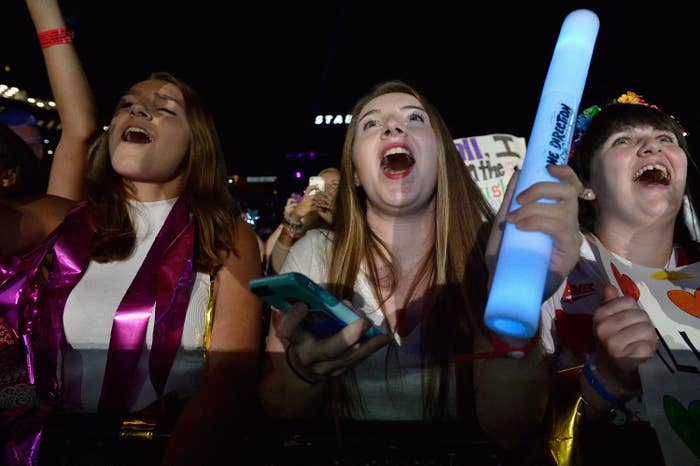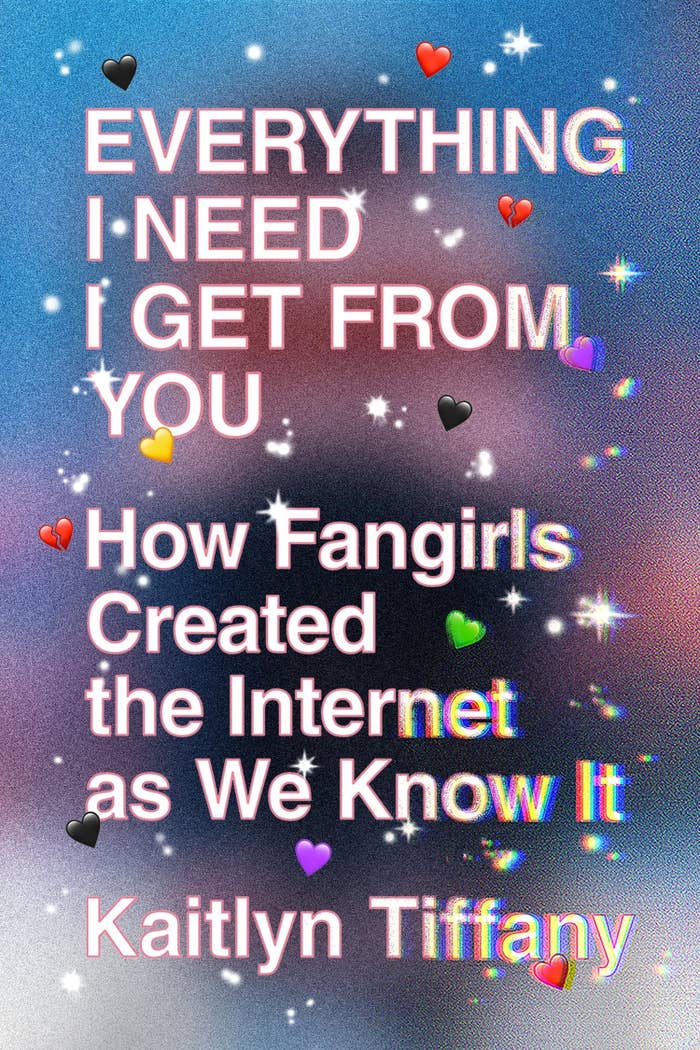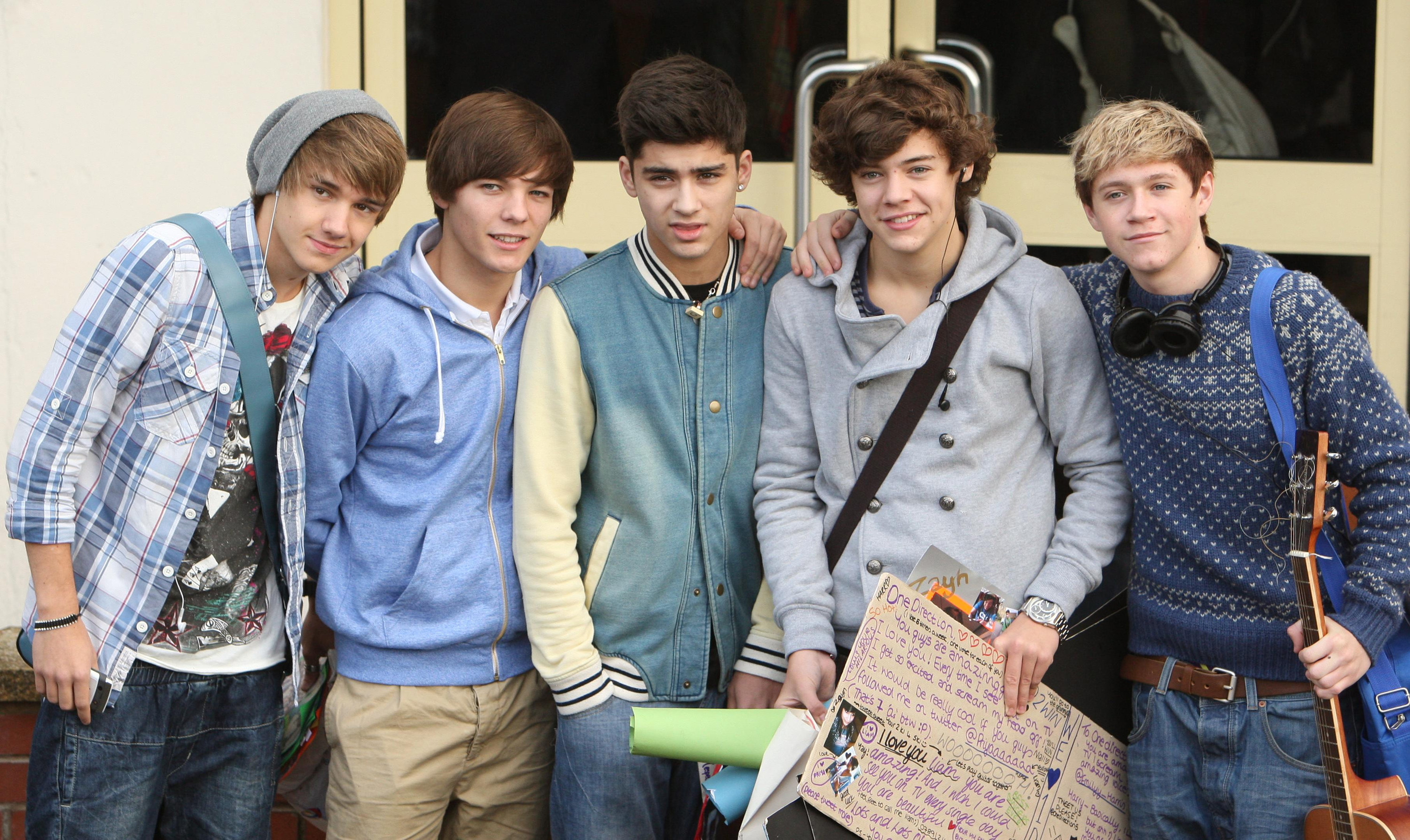
Kaitlyn Tiffany, a staff writer for the Atlantic, became a citizen of the internet for the first time because of the One Direction fandom. In her new book, Everything I Need I Get From You: How Fangirls Created The Internet As We Know It, she gives fans the credit they deserve for their command of technology and their power over trends that has shaped the way we interact in online communities a decade later.
“What I like about it is its brazen senselessness and the creator’s evident delight in her own unusual mind; it invokes the nightmarish nonsense of love for a stranger and the hilarity of losing control,” Tiffany writes of a particularly absurd Tumblr post from a fan. “When I see it, I remember what I wanted more than anything when I was nineteen years old. I wanted something that couldn’t be described.”

Directioners talked so much about a group of four young British men (and one Irishman), a running joke goes, that they ran out of things to say and fully leaned into the absurd. They went into every new platform and forum with two goals in mind — to make their faves known, and to share in their love with the other people who get it.
From the creation of still-relevant fan language (like “I want [X] to run me over with their car”) to fandom-dividing conspiracy theories, Directioners went through it all. BuzzFeed News spoke with Tiffany about what made One Direction fans so special and what other fandoms can learn from them.
Why do you think so many of the biggest fans on the internet are young women?
Kaitlyn Tiffany: I think fandom in general is a broad set of practices where there are lots of demographics presented, but the reason young women are so popular — especially in pop music fandom — is that adolescence is a time in your life when you have a lot of free time and not a lot of control over how you spend it. It’s a tumultuous time when you’re trying to figure out who you are and what you want from life. I heard from almost everyone I interviewed that fandom became more important to them during crisis points or transitional points — adolescence is one, but it can happen again in marriage or parenthood.
Why are fans so consistently the best at using the internet?
KT: They have a head start in having a really clear reason why they would be using the internet, so whenever fans arrive on a new platform, they don’t have to wander around figuring out what it’s for and what features they need. They already know. They are explicit about what the goal of the internet is for them — finding other bands, connecting with other bands, sharing art with bands, and coordinating to promote the interests of the fandom. They come with a plan in mind.

Is there something that originated with One Direction fans that is still around today?
KT: There were honestly a lot of fandoms making early use of the internet, like Beliebers and Rihanna’s Navy, in addition to One Direction [fans]. They embodied this idea that fandom is responsible for the artists they’re supporting and should have a creative role in their career. For example, One Direction lost The X Factor, and fans decided that they lost the show but won the world. The mythology — whether this is actually true or not — is that the amount of social media action they got is what made them into stars and gave them careers. At one point, fans decided that a certain song should be a single, so they made it happen unofficially. There are rumors that certain international fans taught each other to use VPNs to fake American streams. The DIY approach to pop music fandom started with these early fans.
The craving for intimacy within fandom — something that immediately makes you one of the crowd — is interesting to me. As a fan, I know it’s fun to be a part of something that no one on the outside can truly understand. Do you think there are any platforms right now that offer fans the same kind of opportunity to frantically stockpile inside jokes and shape their own lore the way Tumblr did?
KT: I’m not convinced that there’s some major Tumblr Renaissance right now. I don’t think it’s ever going to be the center of internet culture in the way that it was, but it’s chugging along, and there are still people who practice their fandom predominantly on Tumblr. But I don’t think there’s a good replacement for it either. You see a lot of the insular fan community experience on Discord now, like private channels for small groups of fans that you have to be invited to in order to participate. There’s a lot of fan activity on Reddit, too, which isn’t as insular but it’s another platform where there are pseudonyms and throwaway accounts. I think there’s a retreat from being in the public because Twitter has gotten so much attention for being a place for fans, and much of it has been negative, so plenty of fans are looking for quieter places to interact.
I was just at VidCon, where all these fans of a Minecraft YouTuber collective called Dream SMP went absolutely feral — it was predominantly young girls losing their minds over British boys again. It reminded me of the Directioner days of yesteryear. What do you think that those newer fandoms (and established ones that are still transforming, like Nicki Minaj’s Barbz and BTS ARMY) can learn from One Direction fans?
KT: The great tragedy of the One Direction fandom is that it ended up splintering because of conspiracy theories that were just divergent ideas of reality, like that Louis Tomlinson and Harry Styles were secretly in love, or that Louis Tomlinson didn’t really father a child. It became so impossible to reconcile the resentments that were built around such sensitive lines, and that was sad to watch. If I were participating in a fandom now, I would suggest making note of how this became a major weak spot for One Direction fans.

What are the warning signs that a fandom is starting to get toxic? How do we stop that from happening?
KT: I wouldn’t call the One Direction fandom toxic, but it did go through a really sad phase of rupture. What I found most disconcerting was that it was insulated within the fans, who were in charge of information flows. You know the Larry Stylinson conspiracy theory that Harry Styles and Louis Tomlinson are in love? All the evidence would be a super slowed-down video clip or inaudible clips that a fan would caption as if they really knew what they said. There were also images that were cut up and put together in fleeting ways. This all served an agenda that wasn’t just for fun, and it eventually became a dark conspiracy that blamed the people around the boys — mostly women — for making them suffer. They weaponized social justice causes, so if you questioned the Larry Stylinson narrative, you could be accused of being homophobic.
